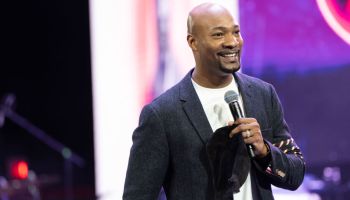The father, once a football man, believed in the power of the stars and the sky. This is still the age of Aquarius, he told the mother when their second son was about to be born. The name Arian spoke to him. He looked it up. It meant water-bearer, holder of knowledge.
Carl Foster was glad. His child would have a name of great importance. “It will guide him through life,” he said.
Then Arian Foster(notes) grew up to write poetry and make music, putting them together in a form of spoken-word melody he hates to call rap because, as he says, “It sounds too clichéd.” He went to college at Tennessee and studied philosophy. He asked questions. He challenged. He was, at 24, everything his parents hoped he could become.
- Time for Cowboys to face reality about struggles Sep 13, 2010
- McNabb brings commander-in-chief presence Sep 10, 2010
All of this was taken into consideration from different cities this week in the hours after Foster ran through the Colts for 231 yards and three touchdowns as the Houston Texans’ top running back. An unknown to most of the country, Foster was suddenly leading all the sports highlight shows following the Texans’ victory. Everyone was talking about how the team had given him the game ball and how he had immediately taken it and handed it to the offensive linemen who opened the holes for him.
Suddenly the child raised to be so many things was a football star.
Over the phone from her office at the University of New Mexico where she works as an administrative assistant for African American student services, his mother, Bernadette Sizemore, laughs.
“Surreal,” she says. “I have a hard time wrapping my head around it.”
They never envisioned their three children as sports stars. There was so much they wanted for them, so many things in the world, places to see, books to read. Sports were a diversion. A fun experience, but never was it to be the center of their lives.
“I started to see how star players were treated; his father and I didn’t like that,” says Sizemore, whose oldest son, Abdul, went on to run track for Florida A&M. “We wanted to make sure he didn’t get a big head. I really don’t like it when athletes have only sports in their life. We wanted him to like other things. That’s the focus we gave all our children growing up.”
She laughs again.
“Now he dances to the beat of a different drum,” she says.
Football had been Carl Foster’s life. Back in the late 1970s, it took him from Carson, Calif., to the University of New Mexico, where he was a wide receiver, and eventually to the training camp of the Denver Broncos, who promptly cut him at summer’s end of 1982. So unlike most fathers, he understood the bitterness of the game, the full commitment it demands, the way it swallows everything else in life. And the last thing he wanted was for his two sons to play.
“I played the game for a long time, I love the game and I grew up in the game,” Carl Foster says from his home in Arizona. “There were a lot of things that I saw in the game that were extremely challenging to a young man. I didn’t want them to get hooked on the game and then after the game have nothing.
“I just wanted them to know there was life after football.”
Here is the son they raised:
On Tuesday he sat on a conference call organized by the Texans. He was asked the traditional question normally directed to a young football player trying to make it in the NFL: Is he comfortable in the professional game now? And he gave the traditional answer that, yes, he was. Then he said:
“I think that stems from just knowing the game of football. I like to think of myself as a cerebral player […] anytime I learn an offense.”
He said he had three offensive coordinators in college, and he took something from each of them.
“I like to learn the ‘why’ I was doing what I was doing instead of being a drone out there,” said Foster, who went undrafted in ’09 following his senior season despite a junior year in which he rushed for 1,193 yards in 2007.
Once he understood the process of the offense he said the game became easier. And once the game seemed easier, he could translate that experience to the NFL.
(Jim Brown/US Presswire)
He did not say this arrogantly, but rather in a matter-of-fact tone – just as he meant no harm in declaring that when he was considering offers from the Texans, Saints, Jets, Giants and Buccaneers in 2009, he decided Houston offered the best chance to win a spot after his girlfriend, Romina, looked up each team’s roster and read the name of the running backs.
Nor was he trying to insult when he said that moving to San Diego in high school to live with his father after his parents’ divorce was the best thing that could have happened, because it removed him from the malaise of his home town of Albuquerque.
“The vision [in Albuquerque] isn’t very high,” he said. “People over there don’t expect a lot from other people. It’s kind of a cesspool of mediocrity. I hate to say that but it really is. It has so much talent over there, but I don’t see a lot of people pushing it over there.”
They are simply observations, answers to explain his life, and yet because football is a regimented game and players who speak their minds are often punished in some form for their candor, he will probably be judged for these things. Just as Sizemore says her son tried to honor the request of the coaches at Tennessee in declining interviews at a testy time in the program’s demise. Only instead of saying it wasn’t the right time or place, he told the reporter he would do the interview in “pterodactyl” and followed his words with prehistoric screeches.
In the end he was exactly what he had been raised to become: someone who saw the world just a little bit unlike everyone else.












